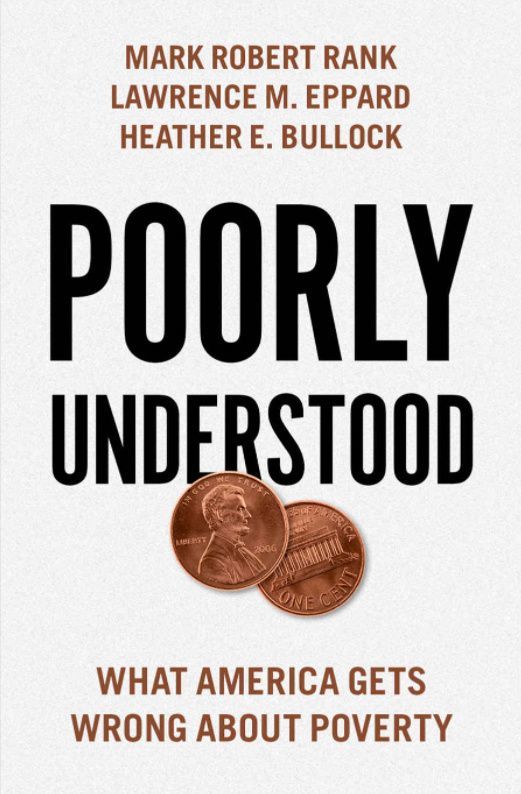
The first reading in the series is “Poorly Understood: What America Gets Wrong about Poverty” by Mark Robert Rank, Lawrence M. Eppard, and Heather E. Bullock
Description: Few topics have as many myths, stereotypes, and misperceptions surrounding them as that of poverty in America. The poor have been badly misunderstood since the beginnings of the country, with the rhetoric only ratcheting up in recent times. In “Poorly Understood: What America Gets Wrong about Poverty” Mark Robert Rank, Lawrence M. Eppard, and Heather E. Bullock powerfully demonstrate that the realities of poverty are much different than the myths; indeed in many ways they are more disturbing. The idealized image of American society is one of abundant opportunities, with hard work being rewarded by economic prosperity. What if hard work does not necessarily lead to economic well-being? What if the reasons for poverty are largely beyond the control of individuals? And if all of the evidence necessary to disprove these myths has been readily available for years, why do they remain so stubbornly pervasive?
Poorly Understood: What America Gets Wrong About Poverty
When: Sept. 19 – Oct. 26
Independent Reading: Sept. 19 – Oct. 16
Facilitated small group discussions: Week of Oct. 18
Live author event: Oct. 26 (please note: this event is not recorded and will not be available for playback at a future date)
Moving from this foundation setting work, future books in the series will take us to a place of deeper learning around specific topics under the poverty umbrella. The remaining books in the series include: “The Lines between Us: Two Families and a Quest to Cross Baltimore’s Racial Divide” by Lawrence Lanahan; “Maid: Hard Work, Low Pay, and a Mother's Will to Survive” by Stephanie Land; and “Halfway Home: Race, Punishment, and the Afterlife of Mass Incarceration” by Dr. Reuben Miller.
By participating in the book club, you will:
Read a critically acclaimed book
Engage in conversations with colleagues and peers
Participate in a facilitated book club discussion group
Attend a conversation with the book club title authors
Examine themes related to the book club series topic
Reflect on how to better serve children and the National CASA/GAL vision and mission
Receive up to four in-service credit hours per book


